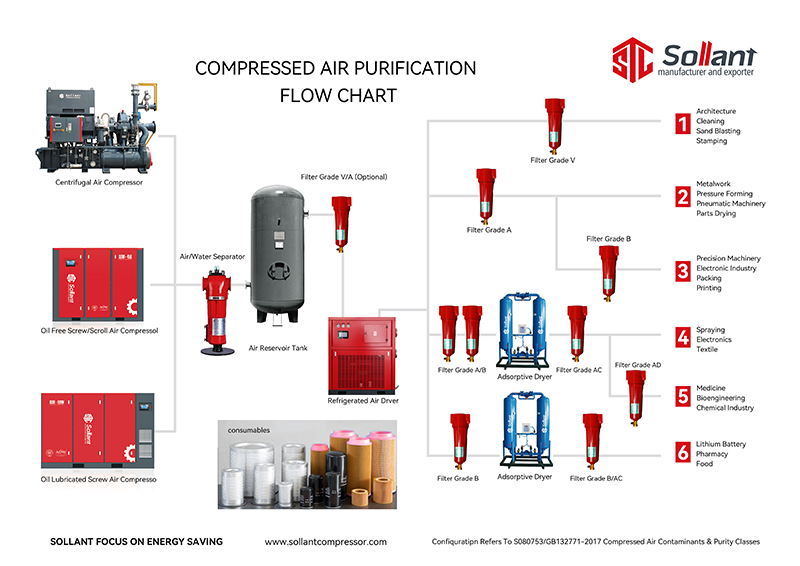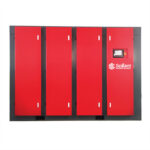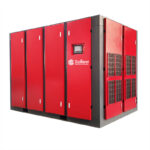An air compressor measures specific power by calculating the amount of energy required to compress a given amount of air to a certain pressure. Specific power is a measure of how efficiently the compressor is using energy to produce compressed air.
To calculate specific power, the compressor’s power consumption is measured in kilowatts (kW) and divided by the amount of compressed air produced in cubic meters per minute (m3/min). The resulting value is expressed in kW per m3/min or kW/m3/min.
The specific power of an air compressor can be affected by several factors, including the type of compressor, the compression ratio, and the operating conditions. For example, screw compressors typically have lower specific power than reciprocating compressors because they operate at a more constant speed and have fewer moving parts.
By measuring and monitoring specific power, operators can identify areas where energy efficiency can be improved, such as reducing air leaks, optimizing system pressure, or upgrading to more efficient equipment. This can result in significant energy and cost savings over time.
Sollant Focus on Energy Saving



